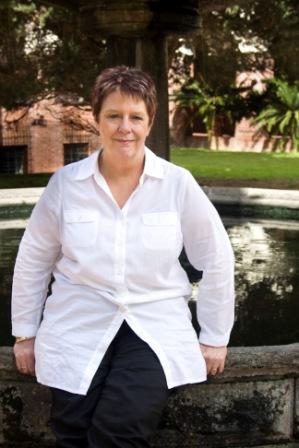
Last week, a panel of higher education specialists concluded in a panel discussion at Rhodes that writing centres have an immensely important role to play within academic and institutional development albeit with a multitude of challenges to consider.
Professor Cecilia Jacobs (Cape Peninsula University of Technology (CPUT)), Professor Chrissie Boughey (Rhodes) and Dr Pam Nichols (Wits) discussed potential options for writing centres in higher education institutions such as Rhodes and gave insight from experiences across South Africa, the United States and the United Kingdom.
Professor Cecilia Jacobs of the Work-Integrated Learning Research Unit at CPUT argued that undergraduate students lack a wider knowledge of context within which their writing exists. She emphasised the importance of encouraging a shift from tacit knowledge creation to concrete awareness.
In addition, Professor Jacobs called for universities to seek out what she referred to as ‘hybrid educators’ and for the creation of a balance between normative and transformative spaces. The latter, she explained, refers to a focus on practice within an academic discipline.
In response to Professor Jacobs, Dr Pam Nichols from the Wits Writing Centre stated that “students learn from students”. Dr Nichols described the workings of the Wits Writing Centre, among which was the use of a combination of academic and creative writing models. She argued for the use of tutor training networks in the establishment of writing centres as well as an emphasis on “writing as identity”.
Professor Chrissie Boughey from the Rhodes Centre for Higher Education Research, Teaching and Learning (CHERTL) began with a brief history of writing courses at Rhodes such as a writing respondents programme; highlighting some of what she felt comprised flawed ideologies. She argued that one cannot separate culture from language as the two are closely intertwined.
Prof Boughey also shared her views on how Rhodes could achieve an academic space that is inclusive of students from a wide variety of backgrounds. This, she said, includes engaging high levels of expertise, financial support and the development of structures to encourage students’ ‘writing in the discipline’.
The panel was in agreement with the need to understand and acknowledge the social context of writing centres as a means of effectively addressing the needs of students. Prof Boughey alluded to this in a depiction the growing numbers of black, predominantly middle class students at Rhodes.
Dr Nichols shared some of the success factors of the Wits model. She stated that the writing centre combines active learning and problem-based thinking thus offering a strong pedagogical space for discussion across academic disciplines.
Among the academic departments represented within the audience were the departments of English, Philosophy, the School of Journalism and Media Studies, Drama and Pharmacy.
Dr Nichols has a background in Comparative Literature and has had extensive experiences in writing centres. Professor Jacobs has an interest in the way in which knowledge is structured in different disciplines. Professor Boughey’s most recent research includes a meta analysis of teaching and learning in South African higher education.
Story by Zukiswa Kota
Picture by Sophie Smith: Professor Chrissie Boughey
